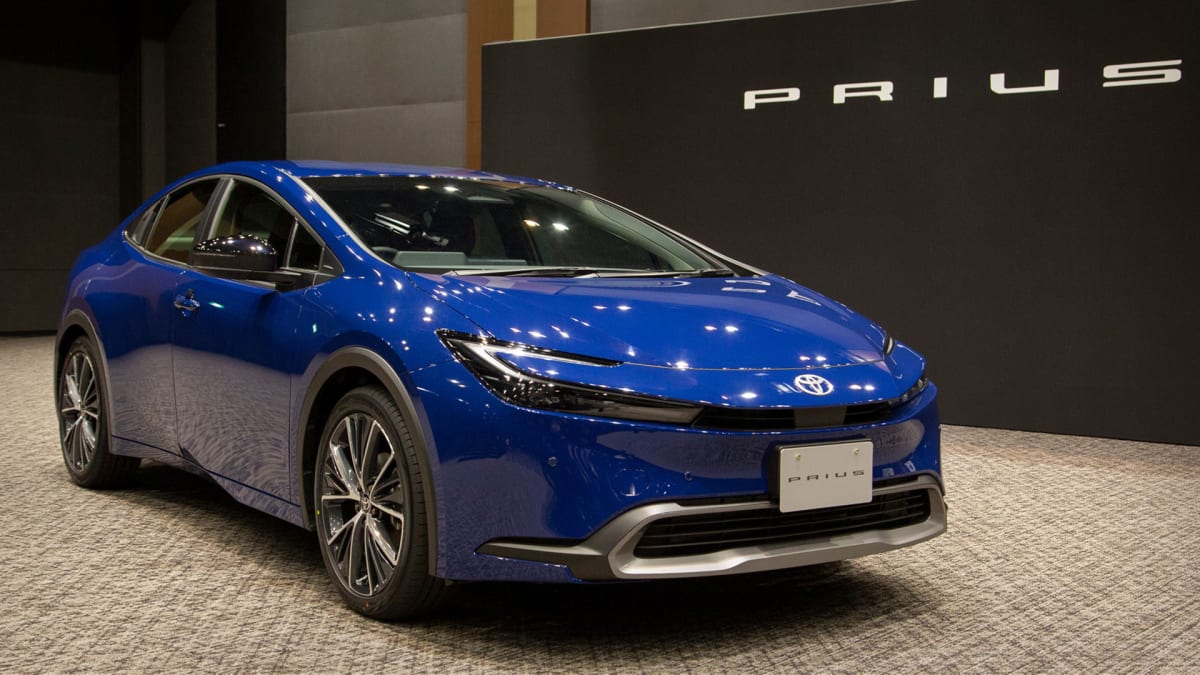
A new era is about to begin at Toyota.
For a long time, the world's largest carmaker in sales has gone its own way.
The Camry sedan maker has completely taken the opposite bet of the entire industry by clinging to its strategy of developing hybrid vehicles like its best-selling Prius model. It has also pushed for hydrogen-fuel-cell cars (The Toyota Mirai is the only fuel-cell car on the market.)
The reasoning of the Japanese behemoth has always been that consumers were not ready to adopt electric vehicles. As a result, Toyota favored a policy of small steps.
But in doing so, Toyota has let a rival emerge which has now taken its place as the barometer of the world automobile. That rival is Tesla (TSLA). Ironically, the Tesla factory in Fremont, California, the first of Elon Musk's group, was once jointly owned by Toyota and GM (GM).
But Toyota sold it to Tesla for a ridiculous $42 million in a partnership that saw the automaker take a $50 million stake in Tesla in the midst of a financial crisis that led to the bankruptcy of GM (GM) and Chrysler.
Complicated Relationship with Tesla
In addition, Toyota and Tesla announced that they would jointly develop an electric version of Toyota's RAV4 SUV and were also considering a Lexus RX electric SUV. But a clash of corporate cultures ended the partnership in 2014. Toyota then sold its stake in Tesla in 2017. In March 2016, Toyota had 2.3 million Tesla shares valued at the time at $538 million.
Fast forward, while Tesla and Musk have managed to convince governments around the world to promote electric vehicles through tax credits and numerous public subsidies, Toyota has found itself out of step with the forward march of the automotive sector.
And to make matters worse: all its competitors are now betting on electric vehicles whose sales continue to increase. Last year, 7.8 million electric vehicles were sold worldwide. EVs thus represented 10% of the total number of vehicles sold, up 1.7% compared to 2021, according to data from LMC Automotive.
In recent months Toyota has even seemed to give the impression that the automaker has lost its compass. Last October, the company said it would invest $70 billion in electrified vehicles, with half that figure in 100% electric vehicles. Unlike other manufacturers, the group's carbon-emissions-reduction strategy was not centered on battery electric vehicles.
At the time, CEO Akio Toyoda doubled down by saying that the vehicle manufacturer would unveil a lineup of electrified vehicles that run on liquid hydrogen and traditional rechargeable lithium-ion battery packs.
A New CEO
This lack of a clear roadmap has just been corrected since Toyota just announced that CEO Toyoda, 66, is stepping down. He will be replaced from April 1 by Koji Sato, 53, Toyota's chief branding and head of the premium brand Lexus.
The company said, in a statement, that it "intends to implement changes to its executive structure effective April 1, 2023, and changes to its Board of Directors effective the date of its 119th Ordinary General Shareholders' Meeting."
Toyoda, the grandson of founder Kiichiro Toyoda, becomes the new chairman and Sato the new Chief Executive Officer, the company detailed.
Toyoda had taken the reins of Toyota in 2009. While He is credited with enabling the Japanese group to dominate the global automotive industry for a decade, he now seemed to be something of a barrier to change as rivals' lead in electric vehicles continues to grow.
It is now up to Sato to launch Toyota in pursuit of Tesla, which has just announced record quarterly results. If the task seems Herculean, Sato will take advantage of the results of a working group set up last year to reflect on a change of strategy in electric vehicles. The conclusions were expected at the beginning of the year.
The establishment of the task force was, according to experts, Toyota's admission that consumers are adopting electric vehicles at a faster rate than it thought.
Toyota also may have figured that Tesla, for example, saw more savings in its factories than it did.







